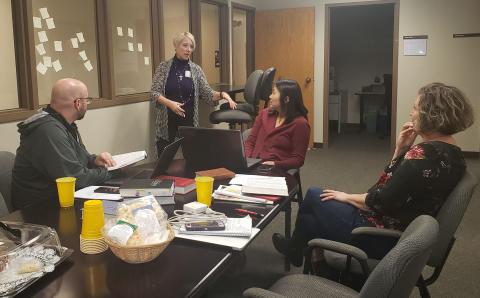Early in 2020, the Council of Delegates was considering a suggestion to meet at least once per year by video conference. This would reduce meeting costs and make it less of a time commitment for delegates than having to travel for meetings three times per year.
After a small team considered the matter, the COD decided not to pursue this course of action. They felt that a significant aspect of the meeting would be lost if they could not physically interact with each other.
That was in February. Little did we know that within a few weeks, the rise of COVID-19 would force us to revisit this question. Instead of asking “Should we consider video meetings,” we found ourselves asking, “Since we must use digital technology to conduct our meeting, how should we go about doing that?”
Context is everything. Our environment, our circumstances, the issues we are dealt, and things beyond our control must be considered before we embark on a course of action. This is also true of ministry. We must acknowledge our context and realities before asking, “How can we honor God and do his will in ministry as we recognize this specific environment?”
Though we often bemoan the problems we have with technology—poor WiFi resulting in poor-quality calls, files that mysteriously disappear on our computers, the inability to see the faces of everyone participating in a video room—we know technology is a gift. We thank God that he has created the world in such a way that we are able to engage each other across the globe by these means. Technology allowed us to have our first-ever virtual meeting of the Council of Delegates, and though we had to cancel Synod 2020, we were able to host a meeting in lieu of synod via technology.
We are also grateful that we can use technology and media for the sake of the gospel. Beginning in March 2020, Christian Reformed churches around North America closed their building doors and gathered for worship using technology instead. In many cases, this was viewed as a necessary inconvenience. It was a temporary setback until we could “return to normal.”
Lately, however, we’ve recognized that although this is not an ideal situation, there are some advantages to gathering online. There are individuals we are able to reach in worship, in small groups, in prayer, that ordinarily would not be present in our churches on Sunday morning. We thank God for this. Hopefully, as we continue to discover new ways to reach our communities and our world, we will continue to use what we’ve learned during this time of pandemic to improve and increase our future ministry.
In this issue, you will read about how technology is being used in worship, global discipleship, and in various aspects of our ministry together. My prayer is that as we engage with this medium, we continue to remember our first love and call—to love the Lord our God with all our hearts and all our strength, and to love our neighbors as ourselves. Technology is one tool that helps us to do that.
May God bless us all as we continue to embark on this journey.
About the Author
Colin P. Watson Sr. is the executive director of the CRCNA. He is a member of Madison Square Christian Reformed Church in Grand Rapids, Mich.






